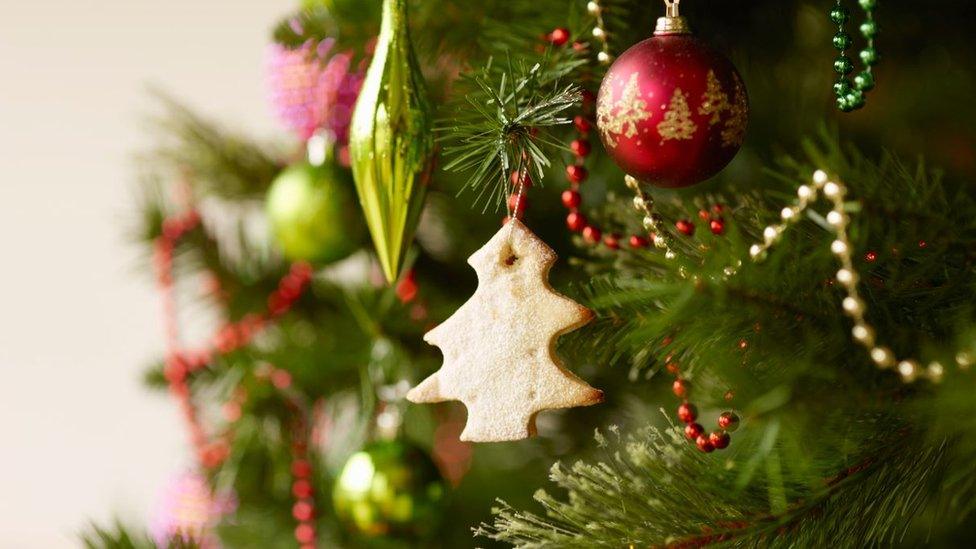Coronavirus: NI facing six-week lockdown from 26 December
- Published
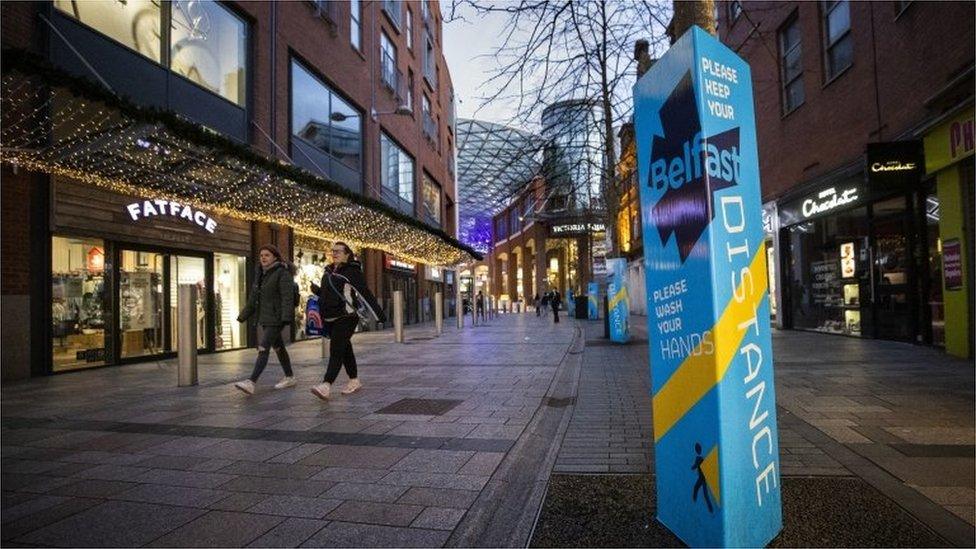
Non-essential shops will have to close again
A new lockdown in Northern Ireland will begin on 26 December, the executive has agreed.
Non-essential shops in NI will close from the end of trading on Christmas Eve in a bid to stop the spread of Covid-19.
Ministers will review the measures after four weeks.
Close-contact services, such as hair salons, will have to shut and pubs, cafes and restaurants will be restricted to takeaway services.
The first week of the lockdown, running until 2 January, will see even tighter measures with essential shops having to close each day by 20:00 GMT.
No sporting events will be permitted at all - even at elite level - with people being urged only to leave their home for essential reasons.
Deputy First Minister Michelle O'Neill said she recognised the lockdown would be "disappointing" for many people, but that it was clear a "longer and deeper intervention" was necessary.
"The health service would be completely crushed in January if we didn't intervene now, so while this is draconian, it's about saving lives," she said.
"We've never been in such a bad position as we are now, and will be in January if this didn't happen now."
The new rules will include:
Closure of all non-essential retail, including garden centres and homeware shops that previously were deemed essential
Click-and-collect services will not be permitted
Closure of close contact services such as hair and beauty salons
Hospitality businesses will only be allowed to offer takeaway and delivery
Closure of the leisure and entertainment sector
Off-licences will have to close by 20:00
Car washes will be closed
Hotels will be allowed to remain open until 28 December to "accommodate the Christmas situation"
People from up to three households in Northern Ireland will still be able to meet over the festive period in so-called Christmas "bubbles" - but that will end on 27 December
'Urgent intervention was needed'
Health Minister Robin Swann, who had proposed the package of measures, said it was the "deepest and hardest" decision ministers had faced since the beginning of the pandemic.
"There was no other way and the message come Boxing Day [26 December] will be 'work from home, and stay at home'," he added.
It is understood people will also not be allowed to meet others in private gardens, while restrictions on indoor visits to people's homes will remain in place.
Health officials have also proposed limiting the reopening of schools in January.
It is understood a package of interventions will be drawn up by the education and health departments and further discussions on this issue will take place.
Situation 'does not get more serious'
Mr Swann also revealed that by Thursday evening, almost 10,000 people in Northern Ireland had received their first dose of the Covid-19 vaccine.
'We have probably taken our hardest decision'
Dr Michael McBride, NI's chief medical officer said the situation "does not get more serious than this".
"These interventions and restrictions are absolutely necessary and I know they'll cause concern but if we are to get this virus under control, and take the pressure off our hospitals, then these are absolutely essential," he said.
He urged people "not to wait" until after Christmas to start reducing their number of social contacts.
People from up to three households in Northern Ireland will still be able to meet over the festive period in so-called Christmas "bubbles".
It follows a previous agreement between the UK nations to stick to plans to allow three households to mix between 23 and 27 December.
Anyone travelling to or from Northern Ireland is permitted an extra day either side on 22 and 28 December.
The new lockdown is being imposed in response to rising numbers of cases of the virus in Northern Ireland.
On Thursday, a further 12 Covid-linked deaths were recorded in NI and a further 656 cases of the virus.
How have businesses reacted?
Its chief executive Colin Neill said he understood why it was necessary, but would "sound the death knell" for many firms that would not survive the six-week period.
"The sector now needs urgent financial assistance at the right level to offset previous debts rung up in the race to be Covid secure and make sure that it is covered during this lockdown which will take weeks, if not months, to see out," he said.
The executive has said previous financial support schemes will continue for businesses forced to close.
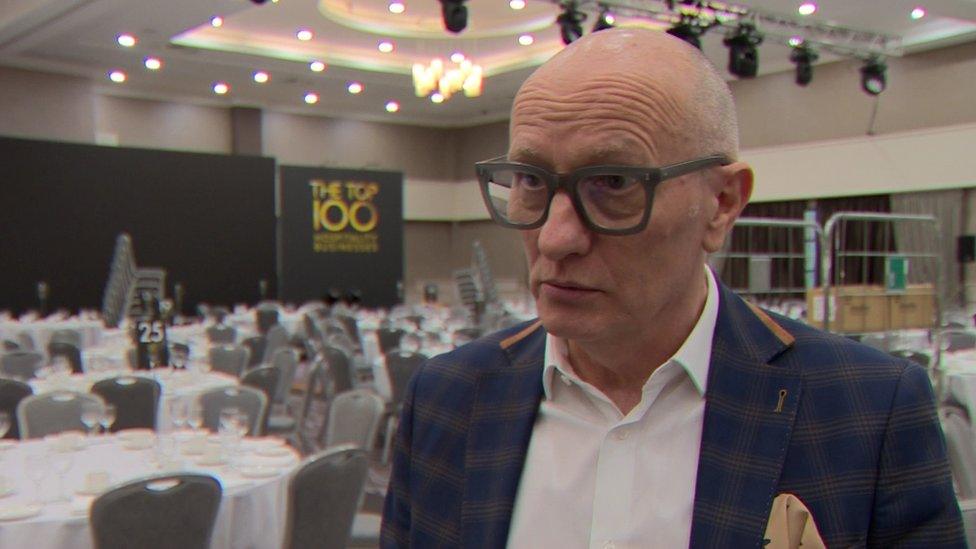
Colin Neill said the decision was necessary but that the executive needed to immediately get financial support out to businesses
The Northern Ireland Retail Consortium said it wanted the executive to "urgently provide clarity" about criteria for retail to reopen after the lockdown.
"We also need shoppers to continue to act responsibly in the shopping days that are left until Christmas," its director Aodhán Connolly said.
"Wear a face covering in store and when queueing, keep your distance, wash your hands, leave extra time for shopping, avoid peak times and most of all be kind to staff and other shoppers."
Glyn Roberts, chief executive of Retail NI, described the news as "profoundly disappointing".
"Make no mistake - this third lockdown will result in a tsunami of independent retailers falling and thousands more jobs being lost with permanent damage done to our local high streets," he added.
Related topics
- Published18 December 2020
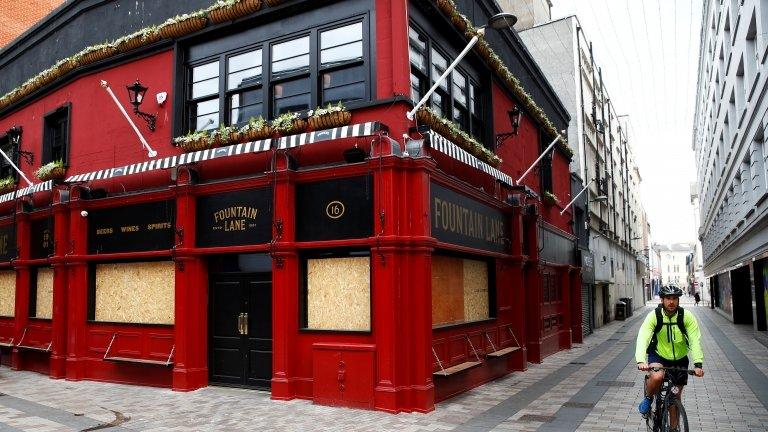
- Published16 December 2020
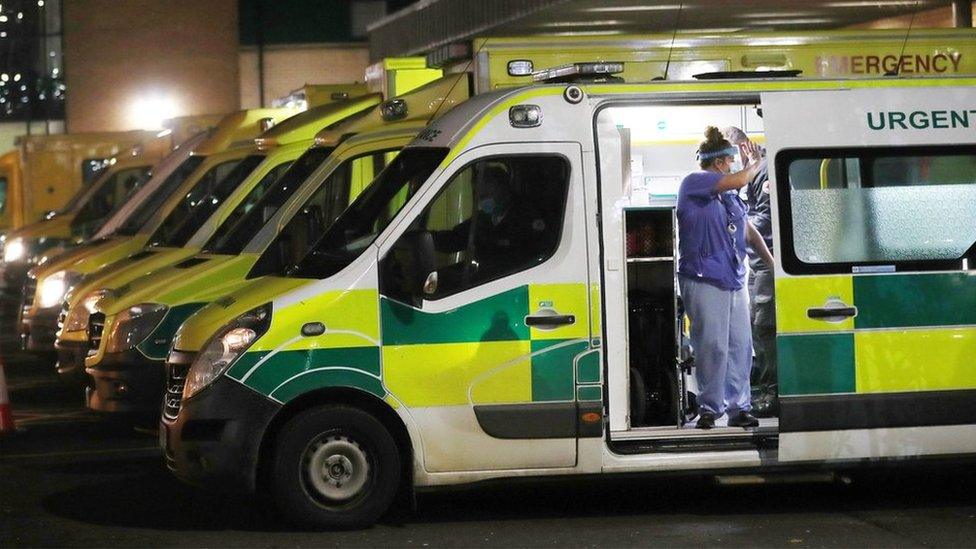
- Published16 December 2020
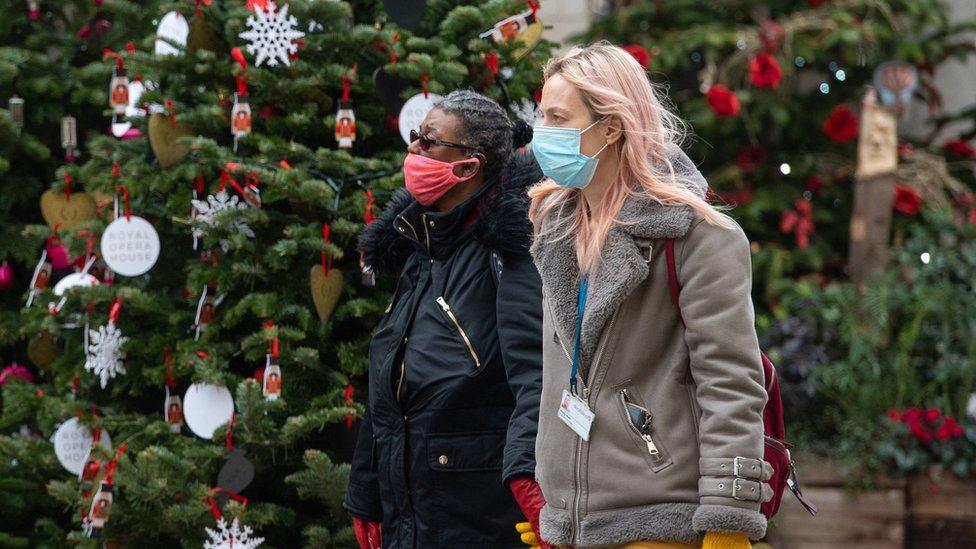
- Published25 November 2020
